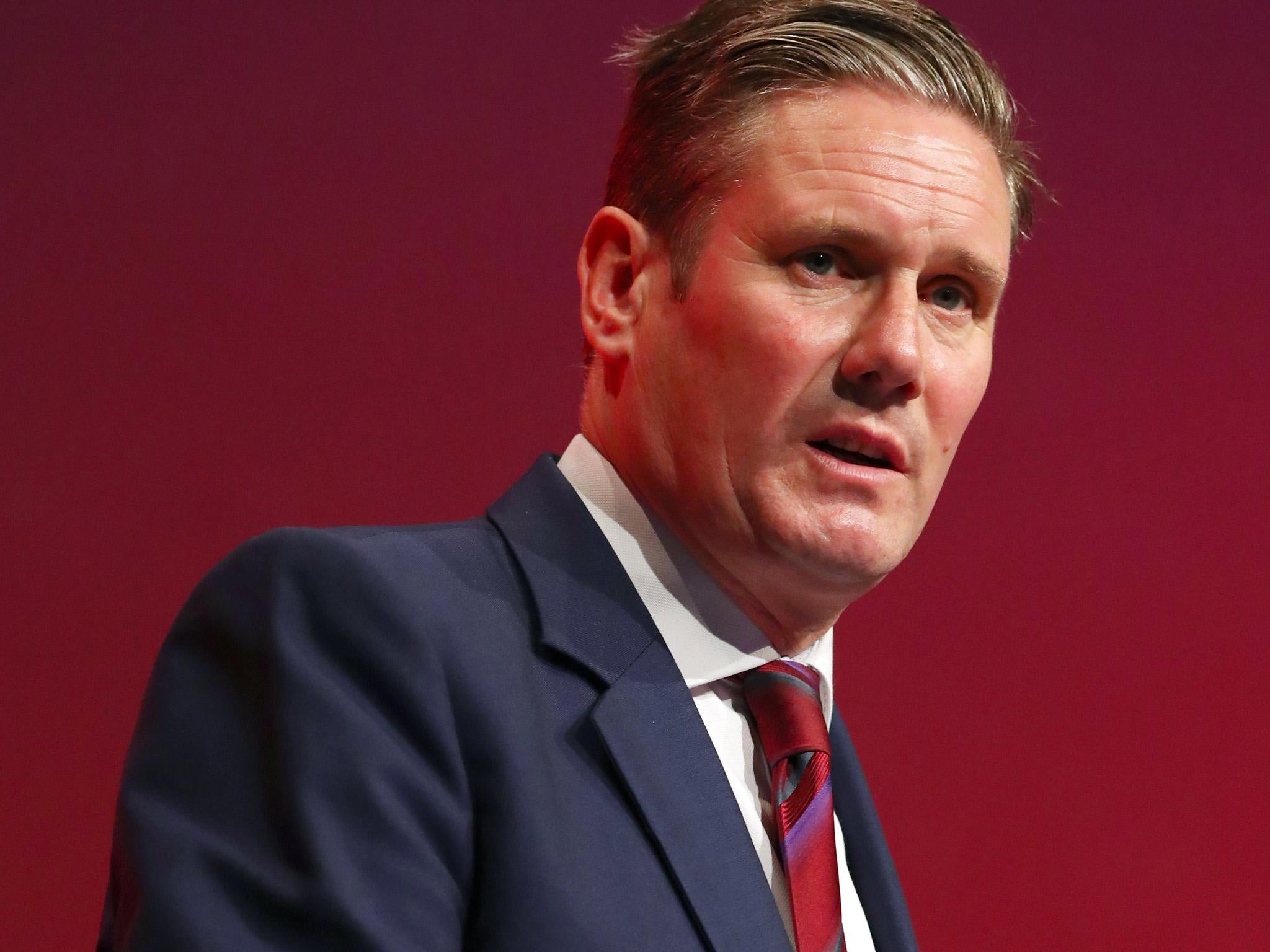Brexit: Labour to force vote on keeping EU Charter on human rights after departure
Keir Starmer says guarantees offered by ministers about basic rights are 'woefully inadequate'

Your support helps us to tell the story
From reproductive rights to climate change to Big Tech, The Independent is on the ground when the story is developing. Whether it's investigating the financials of Elon Musk's pro-Trump PAC or producing our latest documentary, 'The A Word', which shines a light on the American women fighting for reproductive rights, we know how important it is to parse out the facts from the messaging.
At such a critical moment in US history, we need reporters on the ground. Your donation allows us to keep sending journalists to speak to both sides of the story.
The Independent is trusted by Americans across the entire political spectrum. And unlike many other quality news outlets, we choose not to lock Americans out of our reporting and analysis with paywalls. We believe quality journalism should be available to everyone, paid for by those who can afford it.
Your support makes all the difference.Labour is to force a parliamentary vote later this month on the Government’s refusal to enshrine the EU’s Charter of Fundamental Rights in UK law after Brexit.
Keir Starmer, the Shadow Brexit Secretary, said ministers’ analysis of how the basic rights outlined in the Charter will be incorporated into British law was “woefully inadequate”.
Labour wants the provisions of the Charter to be guaranteed in full in legislation. The document is currently one of the few parts of EU law that will not be transferred into UK law when Britain leaves the EU in March 2019.
The Government avoided a potential parliamentary defeat on the issue late last year after promising to undertake a “right-by-right analysis” of how the protections enshrined in the Charter will be guaranteed after Brexit.
The potential rebellion was averted when Tory rebels including former Attorney General Dominic Grieve agreed to back down after receiving reassurances from ministers.
However, Mr Starmer said the subsequent analysis, published last month, had failed to guarantee that basic rights will be protected.
Labour will now table an amendment to the EU Withdrawal Bill, which is due to return to the House of Commons on 16 January, seeking to keep the Charter as part of British law.
The current draft of the Bill states: “The Charter of Fundamental Rights is not part of domestic law on or after exit day.”
Mr Starmer told The Guardian: “The document they released fails to provide any assurance that essential rights will be protected once we leave the EU.
“On the contrary, it takes rights from the charter and scatters them to their original sources: the polar opposite of effective human rights protection.
“We need a cast-iron guarantee in law that the rights contained in the charter will be given the same legal protection as those currently contained in the Human Rights Act.
“This is not a party political issue. It is about the type of nation we want to be. Britain should be a proud advocate of human rights. That’s why I would urge all MPs to back Labour’s amendment to the withdrawal bill when it is debated in January.”
The Government’s document outlined how each of the 50 rights outlined in the Charter will be guaranteed through other legislation after Brexit. They cover freedoms such as the right to a private life, freedom of speech and employment rights governing how workers are treated.
While many of the rights are enshrined elsewhere in UK or EU law, others are not. Some commentators say the Charter also acts as a safeguard that makes it harder for a government to amend legislation in a way that reduces people’s liberties.
Join our commenting forum
Join thought-provoking conversations, follow other Independent readers and see their replies
Comments